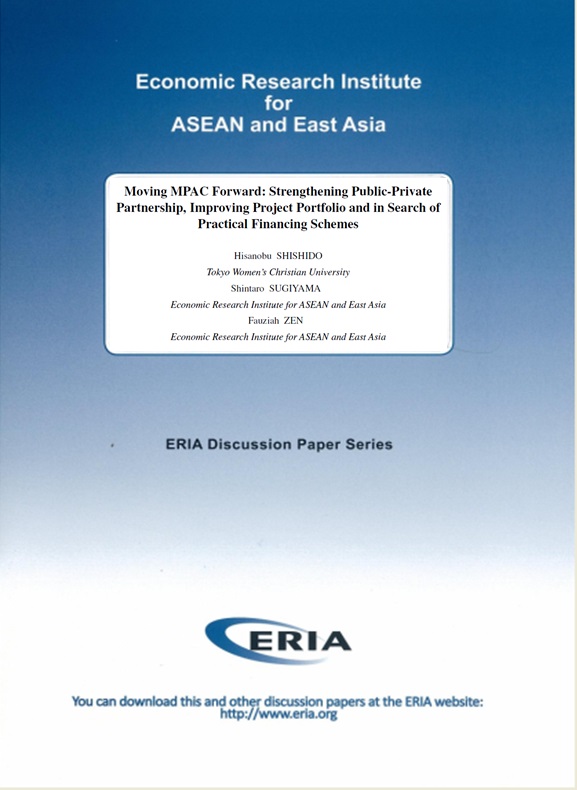Moving MPAC Forward: Strengthening Public-Private Partnership, Improving Project Portfolio and in Search of Practical Financing Schemes

Date:
3 October 2013Category:
Finance and Macroeconomy, Infrastructure, Investment, ASEANType:
Discussion PapersTags:
Print Article:
Abstract
Infrastructure investment has high economic returns, especially in ASEAN economies where enhanced connectivity is critical for their continued prosperity. Each member government needs to ensure infrastructure gaps are narrowed through both the government's own funding and public-private partnership (PPP) arrangements. With regard to PPP projects, the best way to attract private participants is to make projects commercially viable through: (i) careful project development carried out (or advised) by high caliber experts; (ii) adequate spending on project development; and (iii) improvements in the PPP-readiness of member countries in terms of legal, regulatory and institutional environment. We propose that a center of excellence for PPP-related investments be established advising each government and its PPP-units on project selection and development--and carrying out project development for cross-border PPP projects. The center should be staffed with private sector experts or those with private business experience and consider ASEAN regional priorities. Donors should help substantially--given the high growth and poverty reduction impact that infrastructure development has. Too much focus on the funding aspect alone could be counterproductive. However, recognizing the increased risk aversion of the capital markets around the world as a result of the international financial crisis of 2008-09 and the introduction of Basel III, we propose that a new financial instrument be considered that reduces the perceived risk of PPP projects. There should be some lessons to be learnt from the initiatives of project bond credit enhancement started by the European Investment Bank (EIB), which has been received positively by the market.




